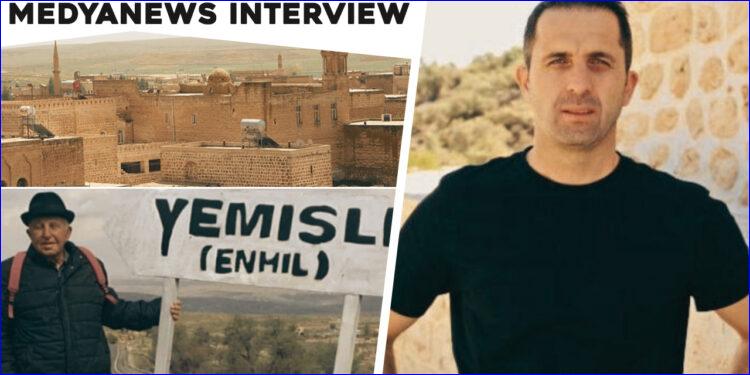


Our conversation with Vergili focuses on the recent murder of Gevriye Akgüç, an incident that has escalated tensions over the Syriac community's ancestral land rights in Mardin (Mêrdîn), Turkey, the case of the Diril couple, and the wider implications for the Assyrian diaspora.
The interview delves into the question of whether recent incidents are part of an organised effort to prevent Assyrians from reclaiming their heritage. Vergili highlights a disturbing pattern of attacks and obstacles over the past 15 years hindering the Assyrians' resilient efforts to return and rebuild.
Could the murder of Gevriye Akgüç and the case of the Diril couple be a sign of an organised effort to prevent the return [of displaced Assyrians] -- even if these actions appear to be spontaneous, could there be an underlying fear of losing what has been seized?
In recent years, Assyrians in the diaspora, displaying an admirable will to return to the country despite the hardships and uncertainties, have been taking steps, visiting, especially in the summer months, restoring their damaged villages, houses and places of religion, and claiming their property. Although permanent return is risky for them, they have remained connected to their own lands, or at least they have never severed links, and in recent times excitement has grown among the younger Assyrian population at the idea of visiting the region. Though the murder that occurred last week, the disappearance of the Diril couple and other incidents appear to be spontaneous and unconnected, when we take an overview we can see that there are elements that do not want, do not desire and do not tolerate return of the Assyrians. For about the last 15 years, attacks have started and obstacles been put up as soon as there has been any indication of an increase in people returning.
Have the Turkish authorities taken any steps to prevent these incidents, if so, what have they done?
The Turkish authorities have not taken or shown the desire to take the necessary steps around attacks, property issues and other rights violations experienced by Assyrians, particularly in the region we call Turabdin, the land in and around Mardin. On top of that, particularly when it comes to property issues, the Turkish authorities and the state do not respect the character and authenticity of the Assyrians or present appropriate proposals for solutions. In the matters of the expropriation of property, the seizure of fields, properties transferred to the Treasury, the Department of Social Housing or other institutions that has been going on for years and the experiences of the Diril family and Gevriye Sarı who was killed in 2021, the state has not done what it should. In addition to this the Assyrians, whose community is very small in numbers, suffer [such] experiences far more than the general population.
How sympathetic is the Kurdish movement to incidents of this nature, do they offer solidarity or co-operation?
We observe that the Kurdish movement takes a sympathetic position to the problems, obstacles and rights violations experienced by the Assyrians, offering solidarity and support both under the roof of the [Turkish Grand National] Assembly and from the point of view of struggle. Noting that the Assyrians' entry into active politics in Turkey started through the Kurdish movement, there have been and still are MPs and personalities who bring the problems onto the agenda within the Kurdish movement and within the legal field. HDP [Peoples' Democracy Party] MPs took what the Diril family went through to the Assembly time after time, and followed the case on the ground. But I do think that, taking the chaotic structure of the region into account, more courageous steps should be taken in certain issues. I think that long-term solidarity should be established on a firm basis between groups with similar historic and current problems who live in the same region and topography.
What does the Assyrian community expect from the Turkish government and opposition, and in particular from the HEDEP [Peoples' Equality and Democracy Party]?
The expectation of the Assyrian community from the Turkish government is that it should take an active rôle in the matter of the solution of the problems of the Assyrian community with respect for basic rights and the rights of minorities, including the formation of a long-term perspective. On the other hand our expectations from both the [main] opposition and HEDEP is that they should be in solidarity with the Assyrian community and should stand up for a group that is in danger and a culture and language that are under threat of disappearing. In addition that, taking into account regional socio-cultural and historical structures and characteristics, HEDEP should offer support where necessary and widen and grow the areas of common struggle. The intense political, economic, military and social change being experienced in the Middle East in general and in Turkey in particular is creating a new and chaotic reality and renders it necessary for defenceless and minority groups to undertake solidarity and common struggle.

or register to post a comment.